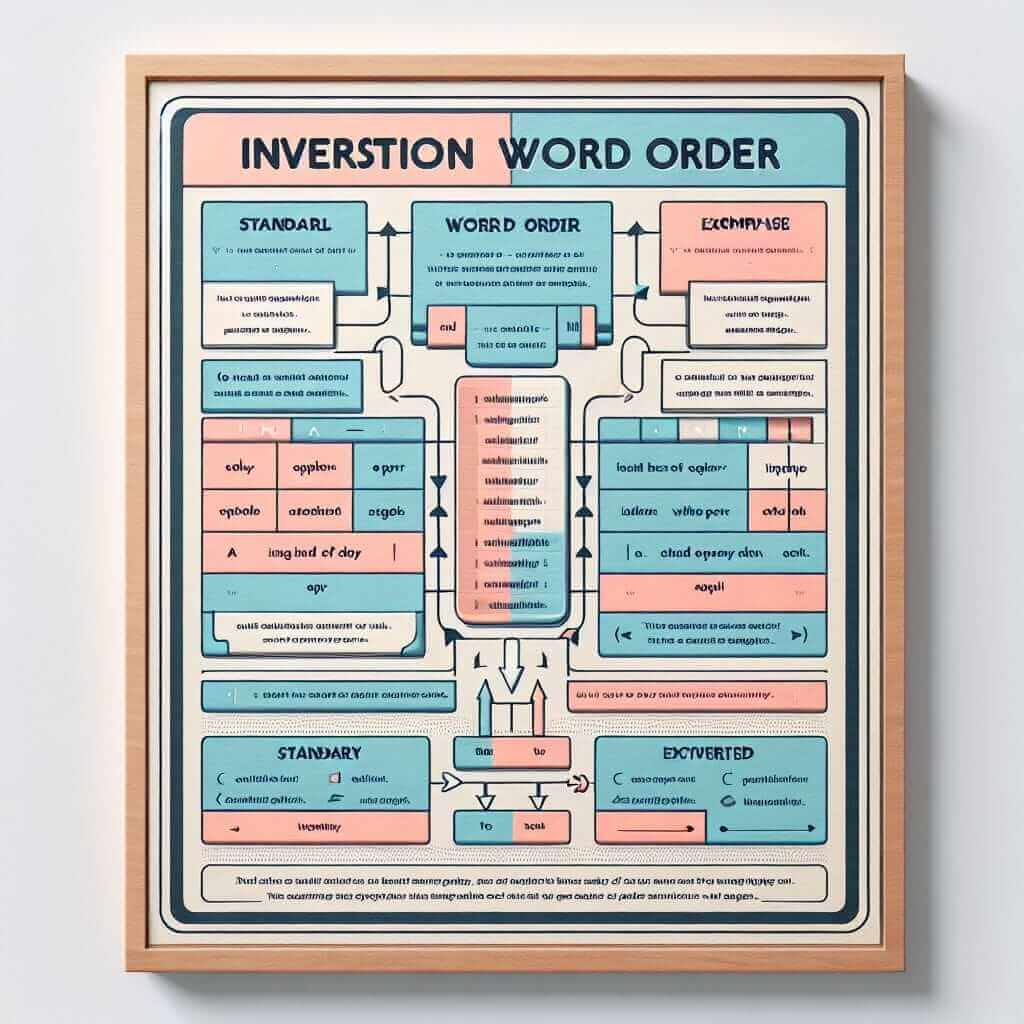Have you ever encountered a sentence like “Only after he apologized did I forgive him” and wondered about the unusual word order? This structure, known as inversion, is a powerful tool for adding emphasis and sophistication to your writing and speaking, especially in the IELTS exam.
Let’s take a look at a few examples of how inversion can be used in different parts of the IELTS exam:
Speaking Part 3:
- Examiner: Do you think forgiveness is important in relationships?
- Candidate: Absolutely. Only after someone genuinely apologizes can you truly move forward. Holding onto anger is never healthy.
Writing Task 2:
- Prompt: Some people believe that technology has made our lives easier, while others argue that it has made them more complicated. Discuss both views and give your own opinion.
- Response: …However, only after careful consideration of the potential drawbacks can we truly harness the benefits of these advancements.
Listening Section 2:
- (In a lecture about environmental conservation) Only after the last tree is cut down, the last fish is caught, and the last river is poisoned, will we realize that we cannot eat money.
In each of these examples, inversion is used to draw attention to a specific part of the sentence and create a more dramatic effect. Understanding how and when to use inversion can significantly enhance your IELTS score by showcasing a wider range of grammatical structures and your ability to use them effectively.
Understanding Inversion
Inversion occurs when we reverse the normal word order of a subject and auxiliary verb. In standard English sentence structure, the subject comes before the verb. However, with inversion, the auxiliary verb is placed before the subject.
Standard Word Order: He did apologize.
Inversion: Did he apologize?
This structure is particularly common in formal English and is often used to emphasize a point or create a sense of drama or surprise.
“Only after he apologized did I forgive him”: Formula and Analysis
Let’s break down the specific structure used in our title sentence:
Formula:
Only + Adverbial Phrase + Auxiliary Verb + Subject + Main Verb
Analysis of “Only after he apologized did I forgive him”:
- Only: This adverb emphasizes the condition that follows.
- After he apologized: This is the adverbial phrase of time, outlining when the action in the main clause happened.
- Did: The auxiliary verb “did” is inverted with the subject “I”.
- I forgive him: This is the main clause of the sentence.
Use in IELTS: This structure is particularly useful in Writing Task 2 when you want to emphasize a condition or a time sequence in your argument.

Applying Inversion for a Higher Band Score
Writing
-
Emphasis in Argumentation:
- Standard: Many people forget the importance of recycling. Only after they see landfills overflowing do they realize the problem.
- Inversion: Many people forget the importance of recycling. Only after witnessing overflowing landfills do they grasp the severity of the problem. (More impactful and sophisticated)
-
Highlighting Conditions:
- Standard: Governments can only tackle climate change if they work together.
- Inversion: Only through global cooperation can governments effectively address the climate crisis. (Stronger and more direct)
Speaking
-
Adding Emphasis in Part 2 & 3:
- Standard: I started to appreciate nature more after I moved to the countryside.
- Inversion: Only after moving to the countryside did I truly begin to appreciate the beauty of nature. (More engaging and expressive)
Important Considerations:
- Avoid Overuse: While inversion can add variety and emphasis, using it too often can make your writing or speaking sound unnatural.
- Formal Contexts: Inversion is more appropriate for formal writing and speaking situations. Be mindful of the tone and context.
Common Mistakes to Avoid
-
Incorrect Verb Placement:
- Incorrect: Only after did he apologize I forgave him.
- Correct: Only after he apologized did I forgive him.
-
Forgetting the Auxiliary:
- Incorrect: Only after he apologized I forgive him.
- Correct: Only after he apologized did I forgive him.
Conclusion
Mastering inversion is a stepping stone to achieving a higher band score in the IELTS exam. By understanding its structure and practicing its application in various contexts, you can elevate your language, making your responses more compelling and demonstrating a sophisticated grasp of English grammar. Remember to use it strategically and appropriately for maximum impact.